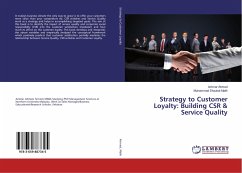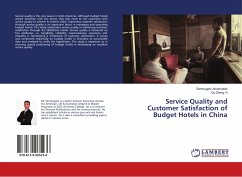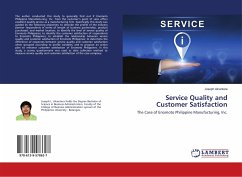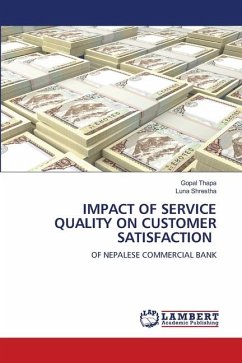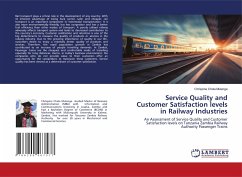
Service Quality and Customer Satisfaction levels in Railway Industries
An Assessment of Service Quality and Customer Satisfaction levels on Tanzania Zambia Railway Authority Passenger Trains
Versandkostenfrei!
Versandfertig in 6-10 Tagen
27,99 €
inkl. MwSt.

PAYBACK Punkte
14 °P sammeln!
Rail transport plays a critical role in the development of any country. With its inherent advantage of being bulk carrier, safer and cheaper, rail transport is an important component in intermodal transportation. It is also more environmentally friendly, has less congestion and has a better fuel efficiency than other modes of transport. A poorly utilised railway adversely affects transport system and leads to decreased contribution to the country's economy. Customer satisfaction and retention is one of the key determinants to measure the quality of products or services in the railway industry....
Rail transport plays a critical role in the development of any country. With its inherent advantage of being bulk carrier, safer and cheaper, rail transport is an important component in intermodal transportation. It is also more environmentally friendly, has less congestion and has a better fuel efficiency than other modes of transport. A poorly utilised railway adversely affects transport system and leads to decreased contribution to the country's economy. Customer satisfaction and retention is one of the key determinants to measure the quality of products or services in the railway industry. Due to the growing importance of quality in our life, customers desire to enjoy a relatively better quality of products and services. Therefore, the rapid population growth in Zambia has contributed to an increase of people travelling demands. In Zambia, Passenger trains are the cheapest and comfortable mode of travelling especially for long distances. Hence, in today's business environment, the companies who do not provide value to their customers offer an opportunity for the competitors to maneuver these customers. Service quality has been viewed as a determinant of customer satisfaction.




